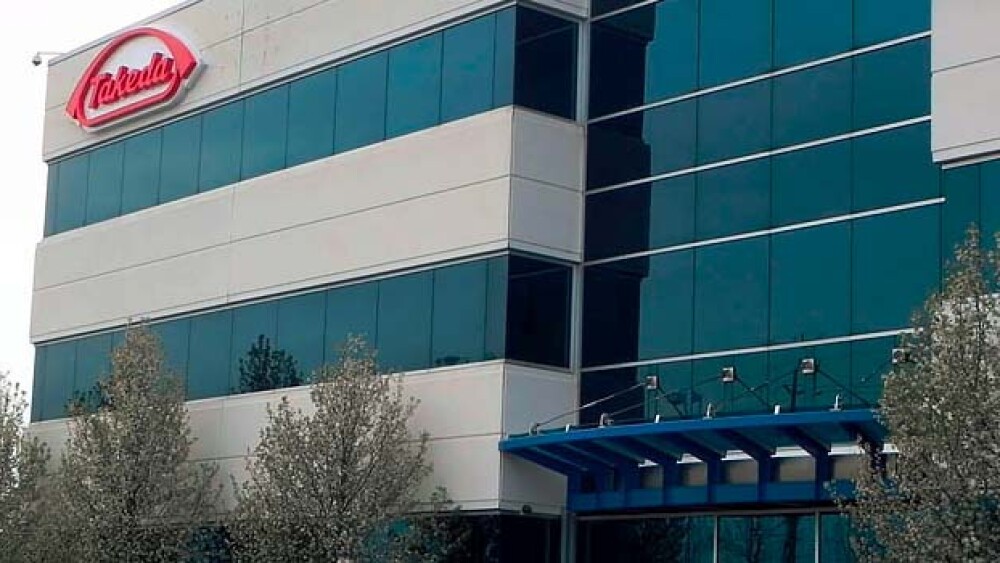As the acquisition of Dublin-based Shire by Japan-based Takeda Pharmaceutical edges forward, yet another major Takeda shareholder has spoken out in opposition to the deal.
As the acquisition of Dublin-based Shire by Japan-based Takeda Pharmaceutical edges forward, yet another major Takeda shareholder has spoken out in opposition to the deal.
The $62.2 billion deal was originally announced in May. And immediately, numerous analysts and shareholders expressed skepticism and concern over the deal. Most were worried that Takeda was taking on too much of Shire’s debt, part of the deal that would push the price closer to $80 billion. CNN wrote at that time, “The price tag has alarmed investors in Takeda: Its shares are down 18 percent since it first revealed it was considering an approach for Shire in late March. The Japanese company has a market value of just $33 billion, stoking fears about how much debt it will have to take on to fund the acquisition.”
Then a shareholder group strongly opposed the deal. During a June annual meeting, the group of 130 Takeda shareholders expressed their opposition and took action, advancing a proposal that would require advance shareholder approval be required for large acquisitions. The proposal received about 10 percent of votes in favor, essentially failing to pick up wider opposition to the merger.
Earlier this month, a member of the Takeda family, Kazu Takeda, aligned himself with the oppositional group, telling The Times, “Hasty decisions on big deals should be avoided. It will lead to disaster if there are large-scale mergers and acquisitions without careful consideration.”
He also said part of his opposition was the feeling the deal would undermine one of the primary principles of “Takeda-ism,” which is that the company makes money by making people happy. He told The Times, “We understand that scaling up is necessary, but Takeda management has to think about the traditional corporate culture and the health of the company.”
And now, a third voice has been added into the mix, although none of the opposition appears to be making headway in scuttling the deal. The Sunday Times reported this weekend that an unidentified investor, one of the top 10 shareholders in Takeda, expressed skepticism that value will be created from the takeover. The shareholder said, “There will be some value distraction from the deal. That’s why we are skeptical.”
The investor also said he believes that the combined value of the two companies is less than their individual value.
Takeda and its chief executive officer, Christophe Weber, are reported to have a plan to deal with the debt. There are possible plans to sell Shire’s Xiidra eye treatment once the deal is completed, and possibly sell its Natpara, a drug used to control blood calcium levels.
Bloomberg indicates Takeda is currently finishing the country regulatory approvals necessary for the deal, “most recently getting passage for the takeover in China. Further regulatory approvals remain before the companies’ shareholders will get a vote.”
Bloomberg News surveyed 25 “M&A and event-driven desks, equity analysts and fund managers,” to get their views on the deal. They expect the acquisition to be finished in March, in keeping with the company’s original guidance.
The combined companies will have headquarters in Japan. Takeda shareholders will own approximately 50 percent of the merged companies. They will have a combined workforce of about 52,000 people worldwide. The merged companies have projected job cuts of 6 to 7 percent, or low to mid 3,000s. Takeda is also considering consolidating Shire’s operations into its own in Boston, Switzerland and Singapore.
Takeda would gain more access to the U.S. market. Shire would gain more exposure in Japan and emerging markets.
The deal will require a positive vote of 75 percent of Shire’s voting shareholders. At this point, the original opposition group represents about 1 percent of voting shareholders. It remains to be seen whether continued criticism by major shareholders will gain any steam.





